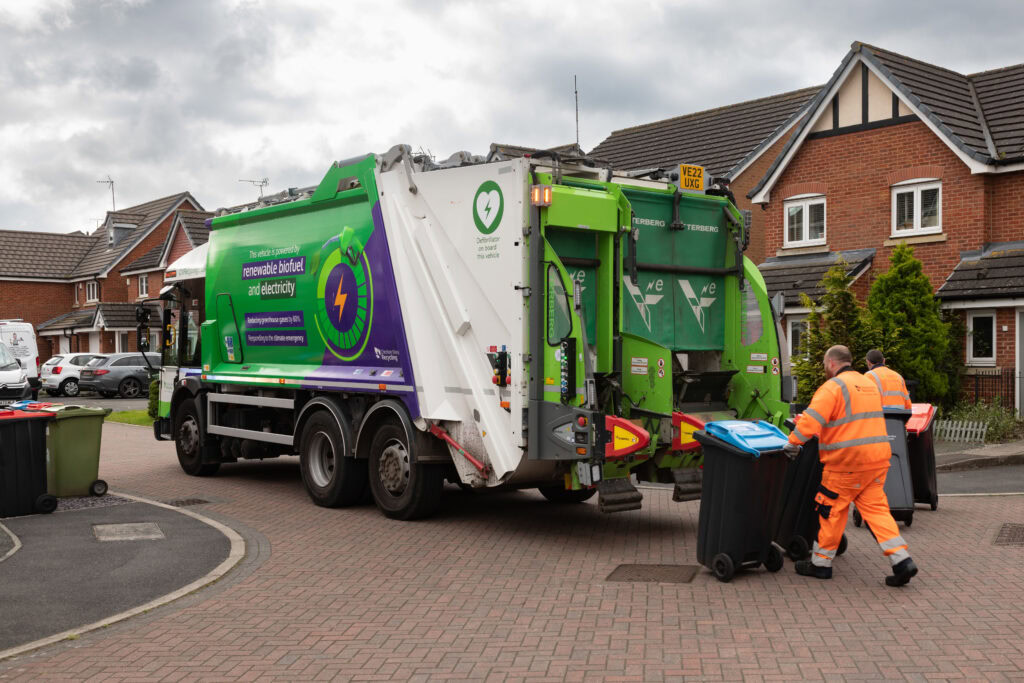The county council has contracted consultancy firm Leap Environmental to conduct the study, which is being undertaken on behalf of all local authorities in Surrey.

It comes after some councils blamed the Agency’s decision on England’s stalling recycling rate (see letsrecycle.com story).
The Environment Agency decided to regulate against the composting of street leaf sweepings over contaminants found while analysing the material against samples of source-segregated green waste, which included metals and oily residues.
While the levels of physical and chemical contaminants ‘varied considerably’ among the samples –the Environment Agency found high levels of polycyclic aromatic hydrocarbons (PAHs) within the leaf sweepings – which can pose a risk to human health.
The decision is thought to have hit Surrey particularly hard – which had been composting between 6,000 and 7,000 tonnes of leaves per year alongside household green waste. Surrey Heath council has blamed the 5% drop in its overall recycling rate in 2013/14 on the Agency’s reclassification.
The leaves are currently sent for treatment at a West Sussex street sweeping processing plant, a solution which, according to the council, means hundreds of thousands of pounds in additional disposal costs.
Costs
Justin Foster, waste contract manager for Surrey county council, told letsrecycle.com that funding a fresh study into the suitability of turning leaf sweepings into quality compost would cost ‘a fraction’ of the present recovery costs.
He explained that while sweepings often took on a ‘wet, gritty and sandy’ appearance, the contaminants described by the Environment Agency had never been tested for under PAS 100 requirements.
Mr Foster said: “We put this contract out to tender a couple of months ago and it will see sweepings samples taken from our waste transfer stations. We are effectively repeating the exercise that we did in partnership with the Environment Agency. But what the Environment Agency did was a small scale study based on a relatively small sample.
[testimonial id = “159” align=”right”]
“We are hoping for a different result this time round, and if not we hope we can work with the consultancy we have appointed to look at how we can clean and process the material ourselves. We would like to go back to being able to compost it and look at how we can get back to the recycling rates we achieved previously.”
Mr Foster added it was yet to be finalised when the findings would be published, but confirmed other local authorities had expressed ‘great interest’ in the results. When contacted by letsrecycle.com, Leap Environmental declined to comment on the study.
Research
An Environment Agency spokesperson said that the organisation would review ‘any new research’ conducted into leaf sweepings, citing follow-up trials involving 10 local authorities which were carried out by the Organics Recycling Group in 2013.
Surrey is not the only county to be left disappointed by the decision. Oxfordshire county council is currently processing its street sweepings at Veolia’s Ling Hill site near Rugby under an interim contract – an arrangement thought to be costing the council around £100,000 per year (see letsrecycle.com story).
In August 2014, Grundon submitted plans to build a £1 million sweepings plant in Oxfordshire – which would recycle the material into secondary aggregates for construction purposes and also produce a compost-like output.
And, in November, Eco Sustainable Solutions installed a ‘state-of-the-art’ £1 million plant at its Parley site in Dorset with the capacity to handle 30,000 tonnes of street sweepings and gully waste per year (see letsrecycle.com story).









Subscribe for free